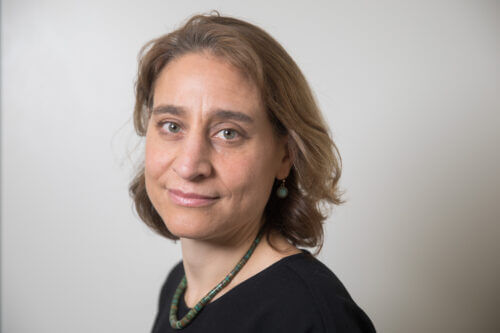The method makes use of test materials, most of which are found in Israel in every laboratory, independent of international commercial companies * The next step in the research is to increase the number of tests using a new method that will allow simultaneous testing of 15 people * From the beginning of March, the university's researchers and students joined forces to strengthen the hospital's clinical testing system Hadassah led by Prof. Dana Wolff. As a result of this fruitful cooperation, approximately 20 thousand corona tests have been performed on the premises of the hospital and the university.

For those who remember, last week an argument developed between the Deputy Director General of the Ministry of Health, Prof. Itamar Grotto, and the Director of Hadassah Hospital, Prof. Ze'ev Rothstein, in which he expresses anger that the hospital performed corona tests for a large public, when there is a shortage of this resource. Prof. Grotto even claimed that this is treason because it is a scarce resource. Today the mystery was solved.
The Hebrew University, which was the first academic institution in Israel to start performing corona tests in collaboration with a clinical center, continues the research process and is now breaking ground in everything related to the way the test is performed. Cheaper, faster and independent of commercial factors in the world.
Recently, it was reported in the various media about the lack of test materials for the corona virus, which slows down the pace of tests for samples already collected from potential patients and reduces the number of samples that can be performed. The danger involved in this is known - more undiagnosed corona patients who may infect the healthy population. The materials necessary for the tests that are performed today come as ready-made kits from commercial companies abroad, which are unable to meet the quantities and pace of global demand. A group of laboratories at the Hebrew University from various fields joined together and under the leadership of Dr. Naomi Habib and Prof. Nir Friedman together with Prof. Yuval Dor from the Faculty of Medicine and Prof. Dana Wolff from the Hadassah Medical Center, mobilized to develop a new and more effective method for diagnosing the corona disease based on materials different from the imported kits , most of which are available in Israel and significantly cheaper.
The method used by today's common test to diagnose corona is extracting RNA molecules from a sample of a potential patient and testing whether among the extracted molecules there is viral RNA that confirms the presence of the corona virus. The new test developed by the researchers does the same thing, only with materials that are not in short supply and at a much higher speed. Dr. Naomi Habib: "We have an efficient protocol for extracting RNA, 4-10 times faster than the current protocol, which is based on magnetic beads and works both on a robot and manually. The robotic protocol has already undergone a series of tests at Hadassah Hospital on hundreds of patient samples - and is now becoming operational."
No more chasing test kits - another advantage of the new test is that most test materials are available and can be produced today in Israel at a significantly lower cost than the kits that are currently imported. The magnetic beads are the only element that requires importing from abroad, but they can be recycled and used in additional corona tests. Prof. Nir Friedman: "Our method enables independence and significantly reduces the dependence on external factors for conducting the tests. We have already run the method on hundreds of samples from Hadassah and all the tests came out the same as the results you get in the current test."
The next step in the researchers' research is to develop a method that will allow the testing of tens of thousands of samples at the same time and not just thousands of tests as is done today. This method will be based on genomic sequencing tools, and meanwhile the results are promising. Prof. Friedman: "We are in the midst of developing a test that will allow 15,000 people to be tested at the same time. We already have very positive indications that encourage us that it can work."
The researchers work day and night in a large team of about 15 researchers and students from different laboratories with complementary expertise to reach the goal. Dr. Naomi Habib: "It's exciting to see the mobilization and motivation of the team to find solutions to bring Israel back to normal." The development of the protocol that is now in use was led by Dr. Ayelet Rahat and Dr. Masha Adam, Alon Chapelboim, Dr. Ronan Sade and Dr. Ennis Kluschandler, together with two robotics experts from the industry, Dr. Uri Shabi and Dr. Moshe Cohen. The research was funded by the Edmund de Rothschild Foundation.
Video credit: Dr. Ayelet Rahat, Hebrew University
More of the topic in Hayadan:
- The Weizmann Institute has started corona tests * Institute scientists present: Corona virus in numbers
- A team of Israeli scientists presents a method to speed up the corona tests 8 times
- About 30 research teams from Bar-Ilan University are working around the clock on studies to deal with the corona virus
